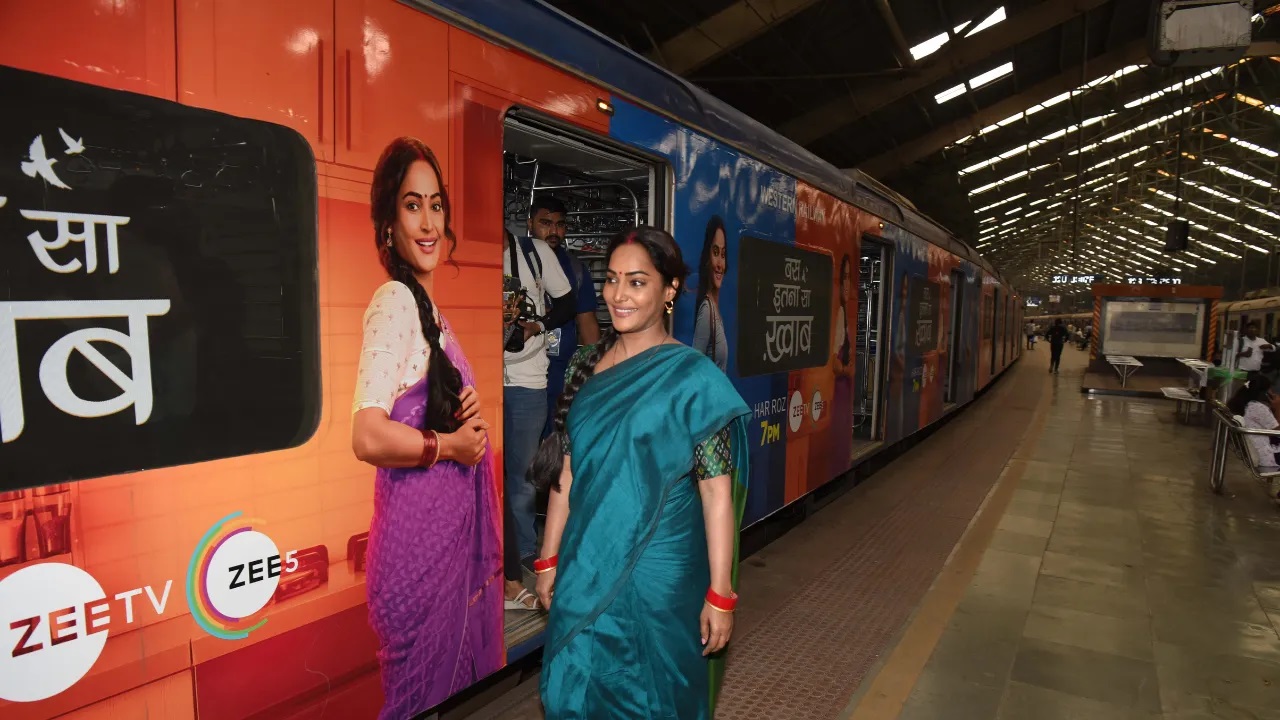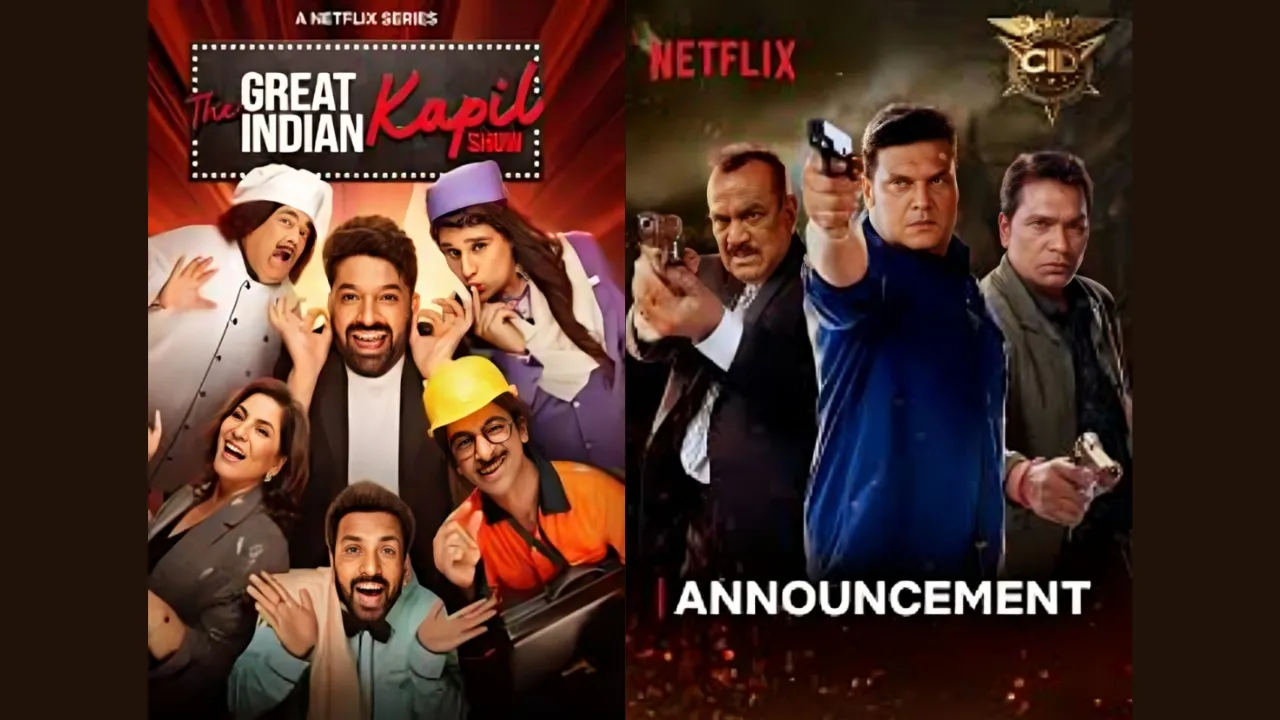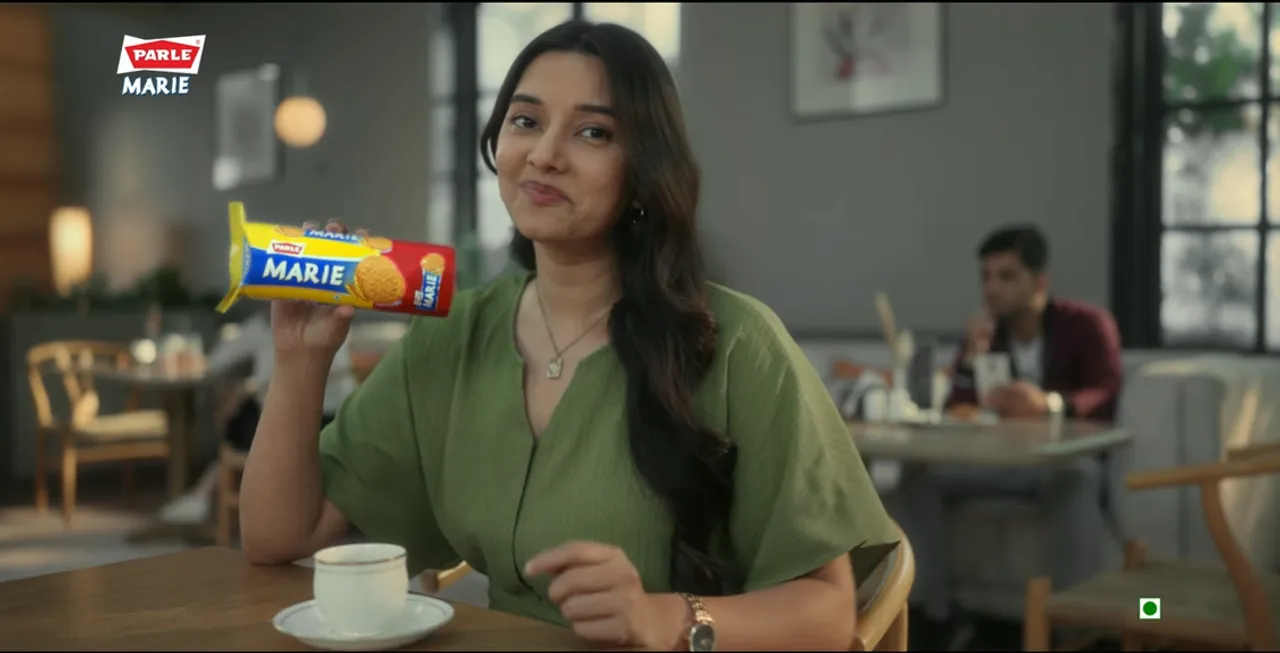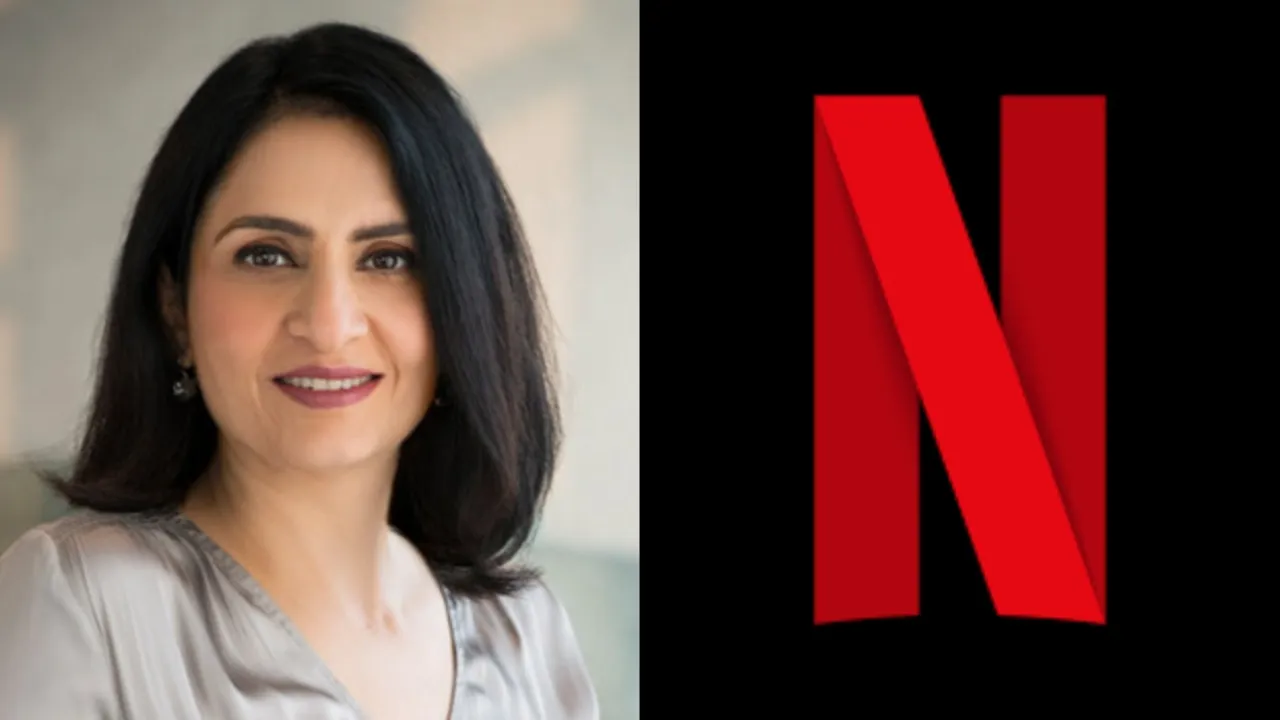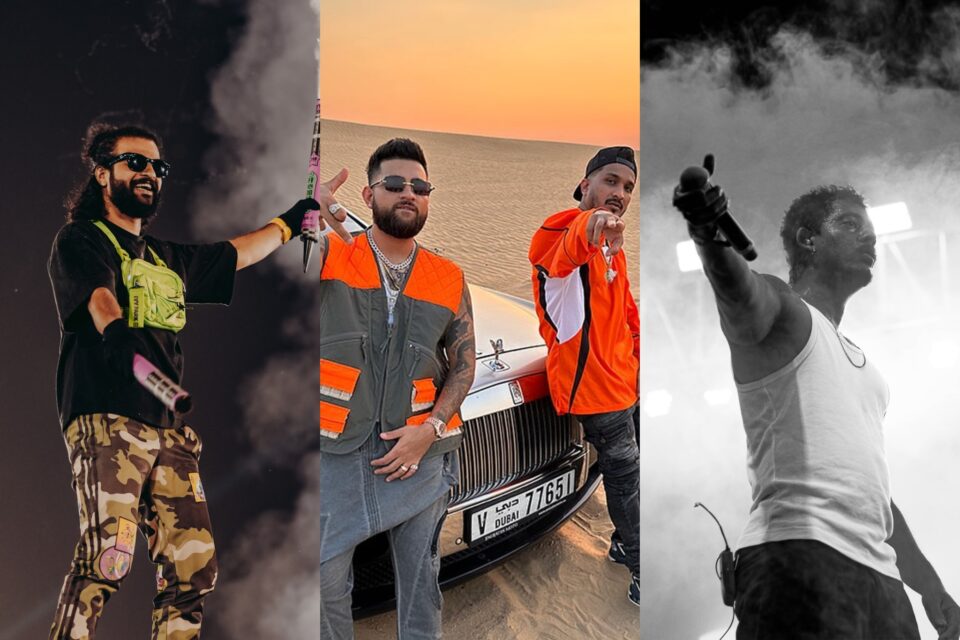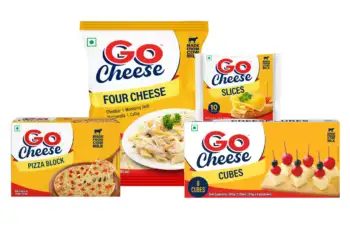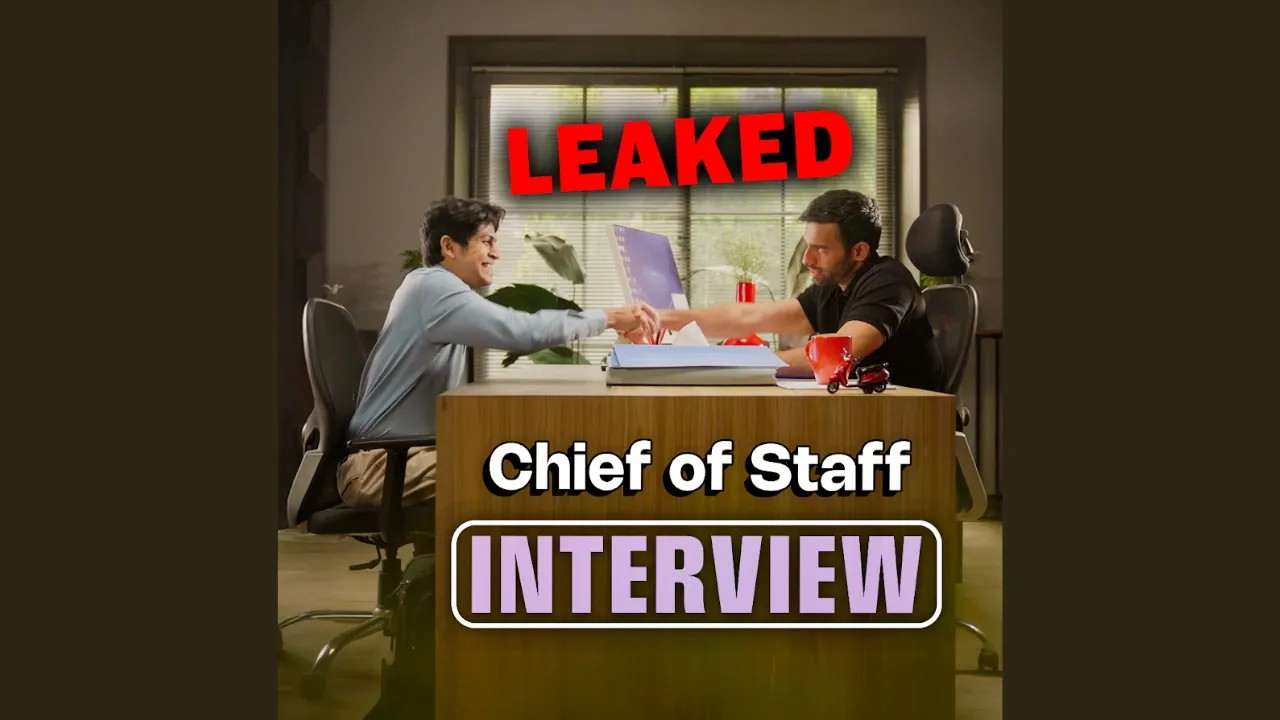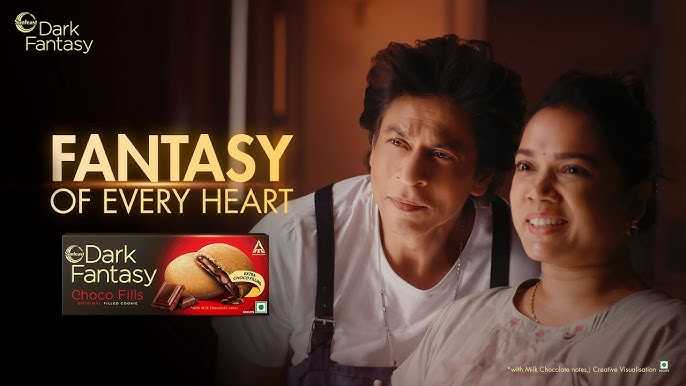Zee TV’s latest initiative for its show Bas Itna Sa Khwaab showcases an inspiring blend of creative marketing and emotional storytelling. The campaign underscores the challenges that women face in balancing work and home responsibilities while shining a light on their resilience and strength.
As part of this unique promotional effort, Zee TV became the first Hindi general entertainment channel to brand Mumbai’s AC local trains and the Delhi Metro with visuals from the show. This innovative branding transforms these daily commuter trains into dynamic, moving billboards, reaching thousands of passengers each day. The campaign seamlessly integrates the show’s theme into the real-life experiences of urban women, making the storyline more relatable and impactful.
Taking the initiative a step further, the channel organized a special experience for Mumbai commuters by involving the show’s protagonist, Rajashree Thakur, who plays Avani Trivedi. Rajashree traveled on a branded Mumbai AC local train, creating a direct connection with the audience. During the journey, she interacted with commuters, played Antakshari, and listened to their stories, turning an ordinary train ride into an extraordinary encounter. This unique interaction bridged the gap between the reel and real worlds, making the character of Avani not just a fictional persona but a reflection of the countless women facing similar challenges.
Mangesh Kulkarni, Chief Channel Officer at Zee TV, shared the vision behind this campaign. “At Zee TV, we constantly strive to create meaningful connections with our audience by weaving our narratives into their everyday lives. Branding Mumbai’s AC locals and having our show’s protagonist, Avani Trivedi, travel with daily commuters is a heartfelt initiative to bridge reel and real. Through this unique experience, we wanted our Avani to meet the countless Avanis of the city—women whose strength lies in juggling myriad responsibilities and striking a balance between home and work, often without the acknowledgment they truly deserve. It’s a celebration of their resilience and a reminder that the story of Bas Itna Sa Khwaab is, in many ways, their own story too,” he said.
This perspective emphasizes the show’s intent to celebrate and recognize the unsung efforts of women who tirelessly balance their personal and professional lives. The campaign isn’t just about promoting a television series; it’s about creating a dialogue around the experiences of working women and highlighting their strength in the face of everyday challenges.
Rajashree Thakur, reflecting on her experience of meeting women on the train, said, “Playing Avani in Bas Itna Sa Khwaab has been a privilege. Meeting women on the train who live similar lives was incredibly humbling. Their stories of juggling long commutes, demanding jobs, and family responsibilities turned out to be truly inspiring. I hope my portrayal encourages women to dream big while finding their balance in life.”
Her heartfelt statement underscores the emotional impact of the campaign. By stepping into the shoes of her audience, Rajashree not only amplified the message of the show but also left an indelible mark on the commuters she met.
This initiative reflects Zee TV’s innovative approach to marketing, where the focus shifts from traditional promotional methods to creating meaningful, real-world experiences. By choosing the Mumbai AC locals and Delhi Metro as their branding medium, Zee TV ensured that the show’s messaging reached a diverse audience, including working professionals, students, and homemakers. The trains, often seen as a symbol of hustle and hard work in cities like Mumbai and Delhi, served as the perfect canvas to communicate the show’s theme of balancing multiple roles.
The use of storytelling as a marketing tool is another highlight of the campaign. Through Avani’s interactions with commuters, the show’s narrative became deeply personal and resonant. The women Rajashree met during the train journey found their own stories mirrored in Avani’s, creating a powerful emotional connection that is bound to translate into viewer loyalty.
The campaign also emphasizes the importance of acknowledging the contributions of women, not just at work but also at home. It shines a spotlight on their ability to multitask, adapt, and overcome challenges, often without receiving due recognition. This message aligns with the broader societal goal of promoting gender equality and celebrating the role of women in building families, workplaces, and communities.
In addition to its emotional and societal impact, the campaign is a masterstroke in terms of visibility and reach. The branded trains and metro visuals ensure that the show’s imagery and messaging become a part of the commuters’ daily lives. This constant exposure reinforces the show’s themes and characters in the minds of the audience, making it a top-of-mind choice when they tune in to watch television.
Moreover, the decision to include Rajashree Thakur in the campaign adds an authentic touch to the promotion. As Avani, she embodies the struggles and triumphs of countless women, and her interactions with real-life commuters bring an unparalleled sense of relatability to the campaign. This authenticity is crucial in building trust and engagement with the audience.
Overall, Zee TV’s campaign for Bas Itna Sa Khwaab is more than just a promotional activity—it’s a celebration of the resilience of women everywhere. By combining innovative branding, heartfelt storytelling, and real-world engagement, the campaign creates a lasting impact that goes beyond the screen. It not only promotes the show but also fosters a sense of community and acknowledgment for the daily struggles and achievements of its audience.
This initiative sets a benchmark for how entertainment can be leveraged to spark meaningful conversations and create emotional connections with viewers. It’s a testament to Zee TV’s commitment to storytelling that is both entertaining and empowering.
Video:
Author: Sonali kamble
